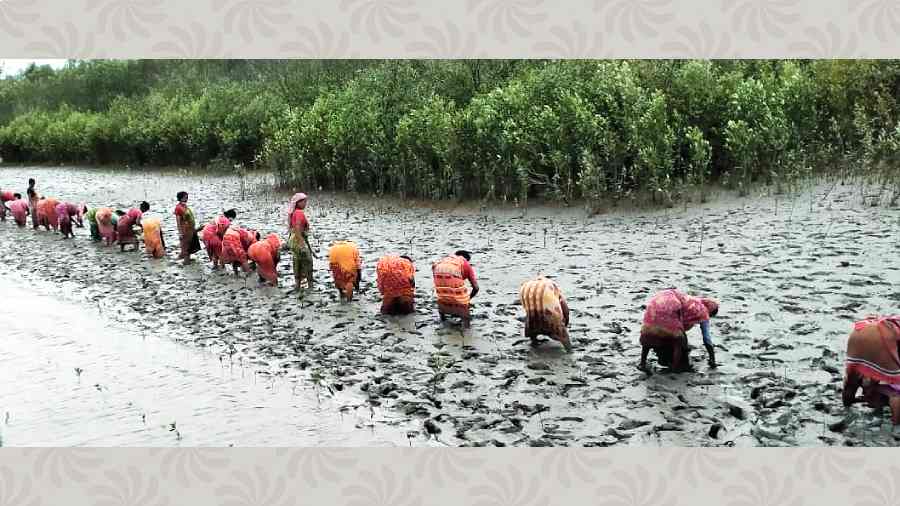More than six lakh mangrove saplings have been planted in the Sunderbans over the past two years in a drive that aims to preserve the delta’s delicate ecosystem and generate income for women.
The project was launched in August 2020 with over 300 women engaged in collecting mangrove fruits from riverbanks. Now, over 1,500 women do the job, those behind the drive said.
The fruits shed by the mangroves are washed away by the tidal water — away from land in low tide and into the land in high tide. The fruits are taken to a nursery in Dulki village in Gosaba, around 100km from the heart of Kolkata.
The seeds are planted in the soil and sand mixture and kept in polythene packs. The base with the sapling is then replanted on the riverbank.
The non-profit organisation behind the drive started with planting around two lakh saplings within the first couple of months of the launch of the project. Since then, it has reached out to organisations for adoption of saplings.
“Till date, we have planted over 4.5 lakh adopted saplings. The rate is Rs 50 for a single sapling. The money we receive is given to the women working for us, members of self-help groups,” said Arpita Mukherjee, president of the Kolkata Society for Cultural Heritage, the NGO that has been steering the project.
Mangroves are known for viviparous germination where seeds germinate and develop into saplings while still attached to the parent tree. With favourable conditions, they can form a colony.
The women workers come from Sonaga in Dulki village in Gosaba. They are involved in three jobs — fruit collection, taking care of saplings and planting them on the riverbank.
The fruits are collected from the banks of the Durgaduani creek and the Datta river.
The adopters include government and private organisations and NGOs.
Soroptimist International of South Kolkata, the city chapter of an international voluntary organisation for women working for the promotion of human rights and gender equality, has adopted around 30,000 saplings in the Sunderbans.
“Mangroves are our protectors. They protect us from cyclonic storms. Cyclone Amphan (May 2020) caused massive damage in the Sunderbans. Planting mangroves along the coastline mitigates the danger from natural disasters,” said Shukla Chattopadhyay, president-elect of the city chapter.
Jashoda Mondal, in her 50s, works in the mangrove project. A resident of Dulki village, she earns around Rs 1,500 per month. “The money is used to buy books for my grandchildren. In the past, they had recharged their mobile phones with the money so that they could attend online classes,” she said.
